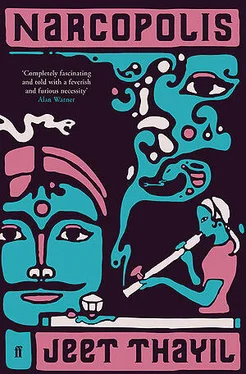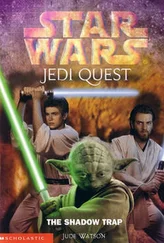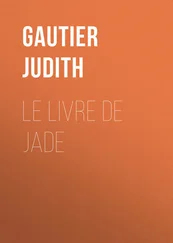*
It was late, past ten, but the traffic was still heavy on the road from the airport back into the city. The day’s emissions had settled into night-time mode, a toxic dust cloud that sat on the tarmac and flavoured the air with the taste of industrial effluents. He wound the window down and took a deep breath, filling his lungs with the usual acrid metal of Bombay. He drove fast all the way to Bandra, where, stopped at the traffic light, he saw a man sleeping under the flyover, his head and body wrapped in a sheet. He looked like a corpse ready for burning, or a pile of rags ready for the incinerator. Beside him were his possessions, bundled in bedsheets, and nearby a fire had been lit. Rumi didn’t notice the man in office clothes until he was at the passenger side window, saying something about a flat tyre. When Rumi looked down at his tyres, the man reached into the car, snatched his wallet from the dashboard and ran the other way. Rumi left the car where it was, unlocked, and took off after the guy. ‘It was all reflex, yaar,’ he told Dimple. He ran easily, in time to the music in his head, wah-wah and echoey vocals, If I don’t see you in this life, I’ll see you in the next one, don’t be late . His vision and smell were so acute he could smell the thief’s breath and the heavy odour of his sweat. His peripheral vision was tremendous. He saw a cockroach on the wall of the flyover. He saw the sleeping man, his cooking utensils and the bricks on which he’d made a meal. He knew the bricks were still hot, knew it without touching. He was moving, no, he was being moved: he was pure body. He stopped running and moved sideways, silently, in a crouch, with his hands hanging. The thief squatted in an unlit area under the flyover. He was going through Rumi’s wallet and putting things into his pocket when Rumi poked his shoe into the man’s side, poked hard and said, ‘Up, sisterfucker.’ The man jumped, his hair wild, a construction worker or a homeless guy in ill-fitting office clothes, not defending himself until he was kicked in the stomach. Then he was punching wildly in the air because Rumi kicked him again, well-aimed kicks to the stomach and chest. And then, he told Dimple, he took the hammer out of his waistband and held it in the two-handed grip he’d practised many times. He already knew the sound it would make, the exact sound of metal sinking into the man’s cheek, the sound of bones breaking. All this he knew; what he was unprepared for was the joy that shuddered up from his hands into his brain, and, as he turned, the first thrilling glimpse of the sleeping man’s face, who was awake now and burbling in fear, begging Rumi not to hurt him.
On that last day — a day of deluge, water stacked in green and brown layers under a floating membrane of debris, the streets and houses flooded and the neighbourhood returned to its original aspect of swamp fed by pestilential rain, a place for mangroves and undersea life, not human habitation; when the city’s network of supply and demand had broken down, and it was impossible to find eggs and coffee, much less the drugs I wanted; when everything had at last been arranged, I was leaving the neighbourhood, the apartment, the habit, I was leaving and I wouldn’t return — on that last day, in parting, the city was revealed as the true image of my cancelled self: an object of dereliction, deserving only of pity, closed, in all ways, to the world.
*
The city claimed seven islands from the sea. In the rainy season, the sea claimed them back. For two days the sky was iron and on the third the rain poured itself into every crevice. It didn’t let up for a week. I looked for the black kites that lived in the coconut tree near my fourth-floor window. I put both hands on the ledge and leaned out until I saw them, two big birds, huddling, miserable in the downpour. I went from room to room. There was a stain on the bedroom wall, a waist-high discoloration where water had seeped into the brickwork, and though the floor was clear of everything except dust, I sat in the exact spot where my armchair had been. This is what I did, I leaned out and hunkered in and waited for a call from the airline. But the phone didn’t ring and I went out into streets that were bright with water. I’m leaving, I thought, and this is my last time. I wanted to be generous to the city because I was leaving it and I thought I heard a wind blowing through the broken streets, a clean wind unimaginable in the midst of such decay. I felt a heaviness settle in my chest and just then I was sure I’d never be free of that chaotic obsolete Bombay, and I’d never be free of my beloved lie, that heroin was an aberration, a last time. I thought: How close I am to happiness and how far in understanding.
At Bandra Station, stranded commuters were playing card games on their briefcases. The weighing machine was silent and on its base a small boy slept with his mouth open. I saw a fight break out among a group of boys who couldn’t have been more than ten years of age. It didn’t stop until a cop came along and clubbed them with his lathi, clubbed them repeatedly. Not even the sight of their own blood pulled them off each other. I saw a woman with her leg in a cast bang her crutch against the weighing machine to wake up the boy sleeping on its base. She shooed him off, sat and lit a beedi. I saw three small children set up a stone under the eaves to chop onions for lunch. They were focused on their task, oblivious to everything, like practitioners of a great and dying art. It might have been there that I saw Rumi, or if not there then not far away, under the eaves on Platform One, or he might have been facing the other way, looking towards the sea and the road to Bandstand, I don’t remember now, but there he was in the drowned light, with his pleated trousers and white shirt, his ballpoint aligned with the vertical, no colour on his person except for the saffron tilak near his shaved hairline. He yawned like an old man and fixed his watery gaze on me and said: Crazy fucking city. Then he said the dealers were out of maal and we would have to go to Bombay Central. But he didn’t move from his spot. He lit a Charminar and offered one to me. Try this, he said. No filter, no menthol: compared to Charminars, Camels are crap and Gauloises are for homos.
*
The rain hammered down and I saw or I thought I saw Rumi’s tall figure in front of me and I splashed after it. After a while of this, I lost track of time, I could have been anyone, I lost myself, which is the reason people like me get into drugs in the first place. Just then, a man splashed past astride an oil drum, paddling with his hands, riding the drum like a water scooter. The rain streamed into my glasses and I lost sight of him, but I was affected by the joy on his face. A red double-decker stopped and we got on. Water ran in sheets down its rusted metal sides. From the bus’s upper deck the view was legendary, like footage from a documentary. The sky was the colour of someone’s black eye. Cows stood in the water, too bewildered to move. Snapped power lines sputtered near a movie theatre. People stepped carefully on the dividers in the middle of the road. They walked in a long broken line and they carried boxes and dead umbrellas and plastic bags filled with flotsam. When they saw the bus some of them tried to run after it but the others stood where they were. We got off at Grant Road and made our way to Hijde ki Galli. The shops and restaurants were open, but under the bridge, where the crowd of shoppers was usually too thick to negotiate, there were no people, just bamboo scaffolding standing in the floodwater, tethered to nothing.
*
The Playhouse Lodge had once been a theatre, three storeys, peaked roof, gothic parapets and arches, and a grand colonial name. But English fell out of use and the Playhouse came to be known by a phonetic variation, Pilahouse, with a nonsensical bilingual meaning, yellowhouse . Now it was a lodge in name only, there were no rooms and nobody lived there who expected room service or clean sheets. It was where Rashid had set up shop after his opium room on Shuklaji Street finally closed. The staircase that led to the Pilahouse was made of rough wood, its planks warped, the lower steps lost in water. Half a dozen men stood huddled near the top. The air was heavy with flies and the smell from a public toilet next door. Rumi wanted to cut the line but the man at the top of the staircase wouldn’t give up his spot. He was huddled in a Mandrax stoop and he mumbled baby talk. He said, Hold on, wait his sheeting, understand? He said, You want, you wait, like. Rumi reached around him to bang on the door. There was a conversation, Rumi’s words rapid, monotone, the Mandrax man hoarse and slow.
Читать дальше












